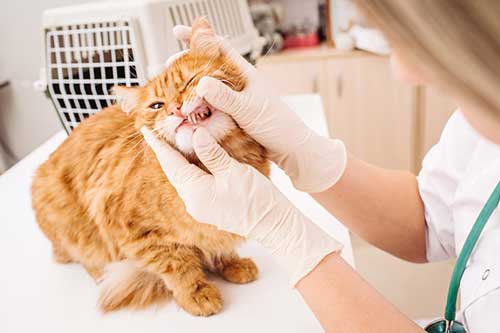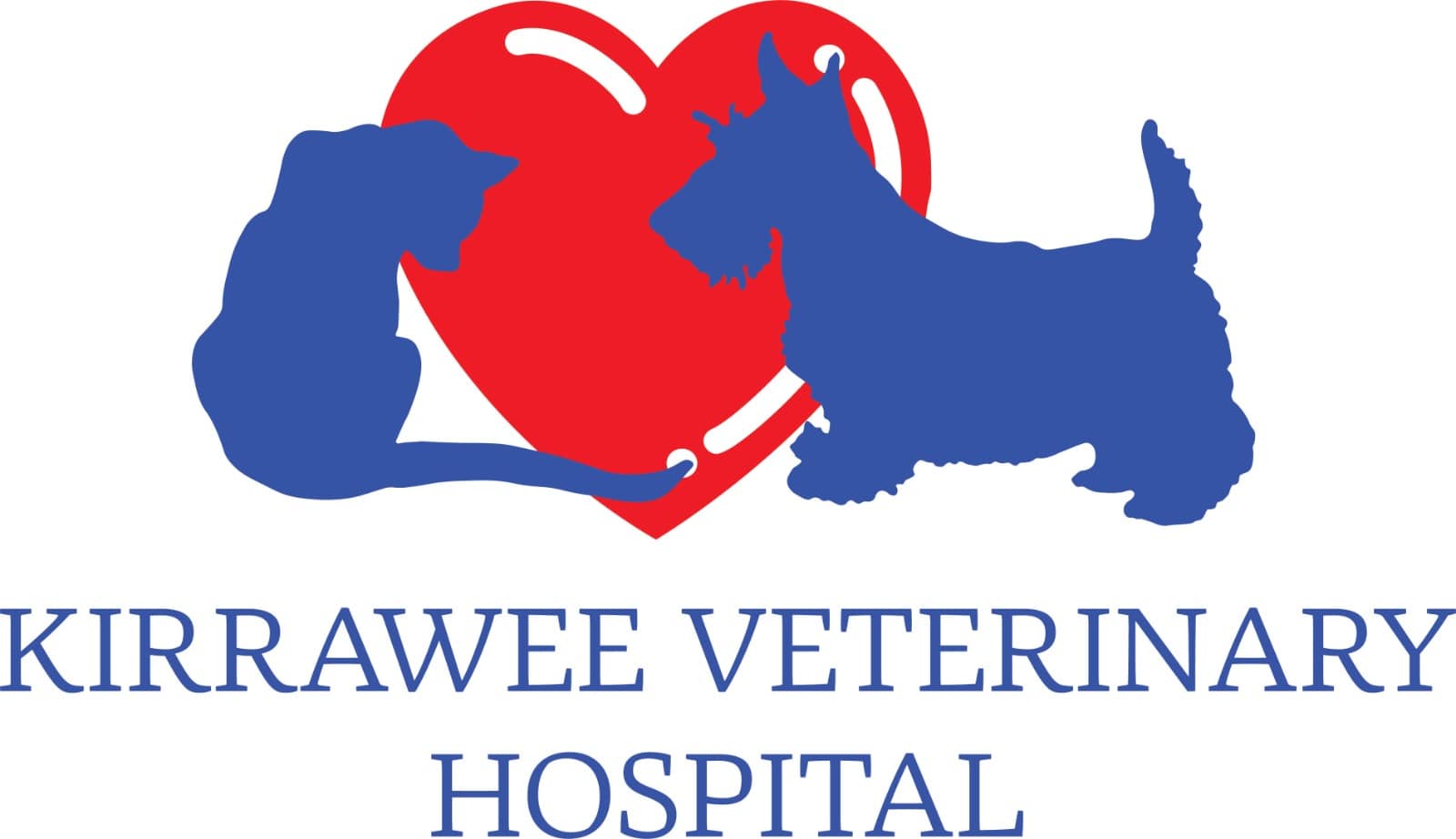Pets Oral Hygiene

Maintaining Good Oral Hygiene in Your Pets
Many of the dogs and cats that we look after at Kirrawee Veterinary Hospital are brought to us with some signs of periodontal (dental) disease. If left untreated, these infections can become painful and even life-threatening for pets. Luckily, dental disease is easily prevented when you follow a good oral hygiene routine for your pet.
In this article, we’re taking a look at the importance of keeping your pet’s teeth and gums healthy and how you can do this at home!
Invest In Pet Food that Protects Teeth
The simplest way to keep your pet’s teeth free of plaque and tartar is by feeding them the appropriate food. Some pet food brands make biscuits in certain sizes, shapes and textures that are designed to produce a mechanical brushing effect on the teeth.
When your pet chews this food, plaque and tartar is physically removed. Plus, many pet foods are made with a specific nutrient that prevents the build-up of plaque and tartar in the first place.
Bones, Dental Chews and Toys
By encouraging your pet to chew, you’ll be helping them to passively remove plaque and spread protective saliva around the teeth. Raw bones and other animal products are great for improving oral hygiene in pets. Just make sure the size of the bone is larger than their head to prevent choking.
There are a lot of excellent chew toys available for cats, including products with catnip, making them more attractive to your cat. These toys will keep your cat preoccupied while removing tartar and protecting their teeth. A winning all-round solution!
Regular Teeth Brushing for Pets
Plaque starts accumulating on a pet’s teeth extremely quickly, making it highly important to stay on top of your oral hygiene routine. Brushing your cat or dog’s teeth will remove this build-up and prevent expensive trips to the dentist for a professional clean.
Our winning method for brushing your pet’s teeth is below. Make sure to work through the steps gradually by slowly introducing each step in order to keep your pet comfortable.
- Introduce tooth brushing slowly and try not to restrain your pet too much. The calmer they are, the easier this process will be in the long term.
- Dip your finger in wet food, chicken/beef stock or tuna juice, and rub this on their gums so they get used to having your finger in their mouth in a positive way.
- Place gauze over your finger and rub the teeth in a circular motion.
- Introduce a soft pet toothbrush with special toothpaste from your local vet or pet store.
Book In For a Professional Clean Today
Professional dental treatment for pets involves a general anesthetic and a comprehensive oral examination. This includes scaling, charting and polishing – similar to a dentist appointment for humans. Sometimes these treatments are necessary to clear away problems that can’t be solved with a pet toothbrush.
If you’ve noticed the signs of plaque and tartar build-up in your pet’s mouth, your best option is to start with a clean slate by organising a professional clean. Book an appointment with the team at Kirrawee Veterinary Hospital today and we’ll take care of your pet’s oral health. Call (02) 9521 6422 or contact us online.
Pet Care Tips Listing
- Things to Know About Pet Diabetes
- Things to Know About Dog and Cat Arthritis
- How to Prevent Your Dog from Biting: Child Safety Tips
- How to Keep Your Dog Mentally Active
- 5 Things to Ask at Your Pet’s First Vet Appointment
- How to Deal with Kidney Failure in Dogs
- What to Do If You See Wildlife on The Road
- 5 Things You Need Before Bringing a Kitten Home
- Fleas: Causes and Prevention for Dogs
- What to Look for in a New Vet?
- How to Stop Cats from Scratching Furniture
- Questions to Ask Your Vet About Your Senior Dog in NSW
- What is separation anxiety?
- 4 Mistakes to Avoid When Training Your Dog
- Choosing Teeth-Friendly Treats for Your Pets
- How to Prepare for Camping with Your Dog
- Maintaining Good Oral Hygiene in Your Pets
- How to Know if Your Dog Has Worms and What to Do
- How to Give Your Pet Medication
- 4 Signs Your Cat Should See a Vet
- Human Food Safety for Dogs: What Foods to Avoid
- Why You Need to Vaccinate Your Puppy Before You Walk It
- How to Potty Train Puppies
- Why Should You Vaccinate Your Cat?
- What Does It Mean If Your Puppy is Limping?
- Expert Dog Swimming Tips by Kirrawee Vet
- How Often Does Your Puppy Need a Bath?
- How to Keep Your Aging Dog Comfortable
- Common Preventable Diseases in Dogs
- Common Feline Musculoskeletal Disorders
- Why Should You Vaccinate Your Dog?
- Patellar Luxation in Dogs – Expert Care in NSW
- Musculoskeletal Disorders in Dogs
- Osteoarthritis in Dogs
- Causes and Treatment of Hip Dysplasia in Dogs
- Do Dogs Need Regular Dental Care?
- Breeds of Dogs That Need the Most Exercise?
- What to Feed Fluffy? Dry or Wet? Both?
